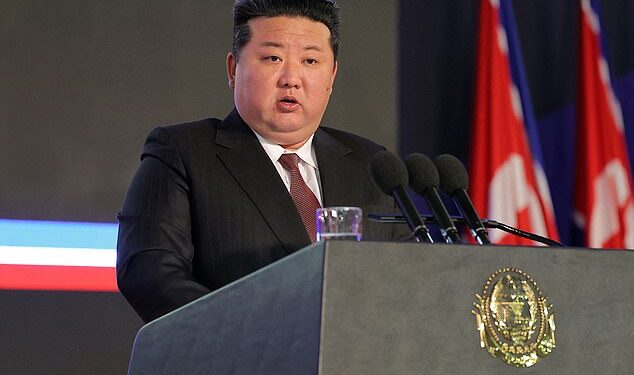No one expected this. Not the Americans who view Seoul as a crucial Asian ally, not half-starved North Korea under the heel of its dictator, and certainly not the people of South Korea themselves.
As martial law was declared by the president Yoon Suk Yeol yesterday, many of the country’s 52 million inhabitants must have feared an international emergency had erupted – perhaps an invasion or nuclear tests by their neighbour.
But, as soldiers barricaded the entrance to the parliament building and all democratic political activity was suspended, it became plain this was a domestic crisis on a seismic scale.
Whatever happens next will only magnify the shock.
Yoon, whose party had already suffered huge losses in this year’s parliamentary election, has acted in a desperate bid to avoid being forced from office. If he topples, he will leave a power vacuum. But clinging on doesn’t seem a realistic option after a half-baked coup to keep himself in power.
Any scenarios are potentially catastrophic for the US, which has more than 24,000 troops stationed in the country.
Since the Korean War of the 1950s, this peninsula has been a crucial foothold in the East for America.
In Beijing, the Chinese Communist Party will be deciding how to react. It is unlikely they will make any sudden moves.

North Korean dictator Kim Jong Un will try to take advantage of political unrest in South Korea over martial law by stirring up more chaos, writes Mark Almond

South Korean President Yoon Suk Yeol declared martial law late on Tuesday but has since had lift legislation following unrest

People gesture as they gather outside the National Assembly in Seoul on December 4, 2024, after South Korea President Yoon Suk Yeol declared martial law
But North Korea’s Kim Jong-un – infamously nicknamed ‘Little Rocket Man’ by Donald Trump – is far less predictable. He will certainly try to take advantage of the situation by stirring up more unrest.
Cyber warfare is a favourite weapon but he could also seek to intimidate his neighbours by firing a missile – a tactic he has used with Japan in the past. He might even order a border incursion to demonstrate his military might.
While South Korea has the world’s lowest birthrate and an ageing population, North Korea is a young nation. It has no shortage of recruits for its large army, and was able earlier this year to send 10,000 troops to assist Russia in Ukraine.
If the North staged a full-scale invasion, the US would have no choice but to declare war. Yet that would put Washington in the impossible position of supporting Yoon, who is now acting as a tyrant.
His bitterest political enemies could not have foreseen this when he was elected as a conservative leader on an anti-corruption platform in 2022. South Korea has been dogged for decades by financial skulduggery in government, and Yoon touted himself as a leading activist in the fight against dirty dealings.
Instead, he has wallowed in the muck. His First Lady Kim Keon Hee has been accused of accepting bribes. Opponents liken her to Marie Antoinette.
We don’t yet know whether Yoon will go quickly, or whether the National Assembly, having lifted the martial law decree, will demand his head. As I write, the situation is uncertain.
What is certain is that this volatility in a major economy balancing on a nuclear trip wire means South Korea’s crisis will have repercussions around the world.

Soldiers try to enter the National Assembly building in Seoul on December 4 2024, after South Korea President Yoon Suk Yeol declared martial law

It comes as Kim Jong Un sent thousands of troops to Ukraine to assist Russian soldiers amid the ongoing conflict
The collapse of the coup doesn’t mean that after a bout of midnight madness South Korea will return to normal.
That this could happen shows that behind the facade of K-Pop and Samsung Galaxies, deep problems of corruption lurked. Another crisis about who will take over in South Korea may just be beginning.
Mark Almond is director of Crisis Research Institute in Oxford.







